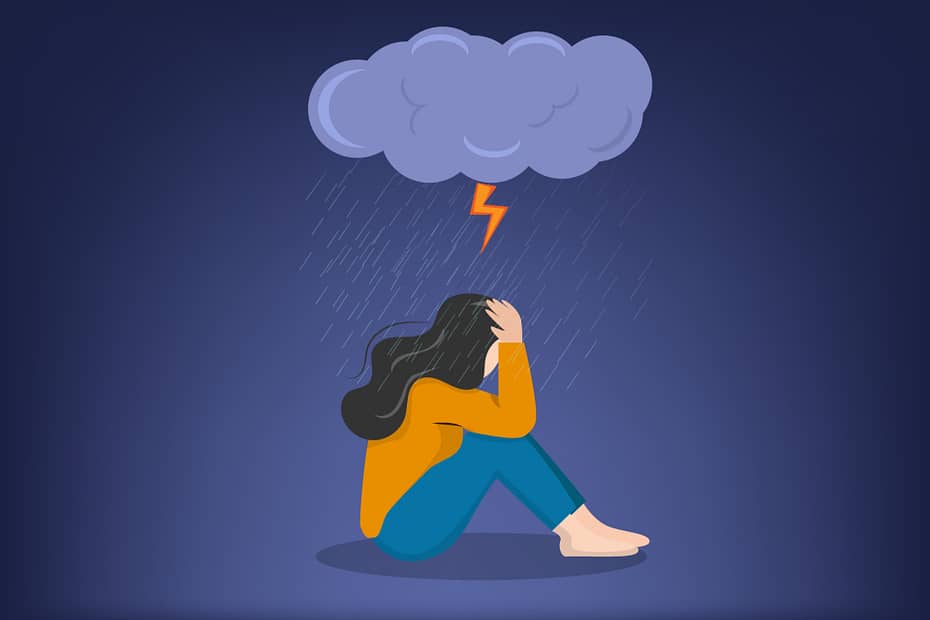Depression is a complex and widespread mental health condition that affects millions of people worldwide. While it’s often associated with feelings of sadness and hopelessness, the causes and reasons behind depression are multifaceted. In this blog post, we’ll delve into the depths of depression to better understand its underlying causes and the various factors that contribute to this challenging condition. By shedding light on these aspects, we hope to promote awareness and pave the way for more effective support and treatment.
Understanding Depression
Before we explore the causes and reasons for depression, it’s crucial to have a basic understanding of what depression is. Depression, also known as major depressive disorder, is a mood disorder characterized by persistent and profound feelings of sadness, loss of interest or pleasure in activities, and a range of physical and emotional symptoms. These symptoms can vary in intensity and duration, but they often interfere with an individual’s daily life, relationships, and overall well-being.
Types of Depression
Depression can manifest in various forms, including:
- Major Depressive Disorder (MDD): The most common form of depression, characterized by persistent and severe symptoms.
- Persistent Depressive Disorder (PDD): A long-lasting form of depression that can last for years, with symptoms that may be less severe but still impactful.
- Bipolar Disorder: A condition that alternates between periods of depression and mania, characterized by extreme mood swings.
- Seasonal Affective Disorder (SAD): A type of depression that occurs during specific seasons, most commonly in the winter.
- Postpartum Depression: A form of depression that affects some women after childbirth.
- Situational Depression: A short-term form of depression triggered by a specific event or situation.
Causes and Reasons for Depression
Depression is not the result of a single cause but rather a complex interplay of various factors. Understanding these causes and reasons is crucial for providing effective support and treatment. Let’s explore these factors in detail.
1. Biological Factors
a. Genetic Predisposition
One of the most significant biological factors in depression is genetics. Research has shown that depression can run in families, suggesting a genetic predisposition. Individuals with a family history of depression may be at a higher risk of developing the condition.
b. Neurotransmitter Imbalance
Neurotransmitters are chemical messengers that transmit signals in the brain. An imbalance in neurotransmitters, such as serotonin, dopamine, and norepinephrine, is associated with mood disorders, including depression. Medications like antidepressants work to regulate these imbalances.
c. Brain Structure
Changes in the brain’s structure and function have been linked to depression. The hippocampus, a region associated with emotions and memory, may be smaller in people with depression. Additionally, the prefrontal cortex, which plays a role in decision-making and emotional regulation, can be affected.
2. Environmental Factors
a. Stress
High levels of chronic stress can contribute to the development of depression. Stress triggers the release of cortisol, a stress hormone, which can affect brain function and increase the risk of depression. Traumatic events, such as the loss of a loved one or exposure to violence, can also lead to situational depression.
b. Childhood Trauma
Adverse childhood experiences, including physical or emotional abuse, neglect, or the loss of a parent, can have a lasting impact on mental health. Children who experience trauma may be more susceptible to depression in adulthood.
c. Chronic Illness
Living with a chronic medical condition, such as cancer, diabetes, or heart disease, can increase the risk of depression. The physical and emotional challenges of managing these conditions can take a toll on one’s mental health.
d. Substance Abuse
Substance abuse, including alcohol and drug addiction, is strongly associated with depression. These substances can alter brain chemistry and lead to the development of depressive symptoms.
3. Psychological Factors
a. Personality Traits
Certain personality traits, such as a tendency toward pessimism, low self-esteem, or perfectionism, may make individuals more vulnerable to depression. These traits can influence how a person perceives and responds to life’s challenges.
b. Coping Mechanisms
The way individuals cope with stress and adversity can affect their risk of developing depression. Maladaptive coping strategies, such as avoidance or self-isolation, can exacerbate symptoms, while healthy coping mechanisms can help prevent or alleviate depression.
4. Social and Cultural Factors
a. Social Isolation
Lack of social support and feelings of loneliness can contribute to depression. Humans are social creatures, and meaningful social connections are crucial for emotional well-being. Isolation and a lack of a support system can increase the risk of depression.
b. Cultural Factors
Cultural and societal norms can influence the perception and expression of depression. In some cultures, discussing mental health is stigmatized, which may discourage individuals from seeking help. Cultural expectations, gender roles, and discrimination can also play a role in depression.
5. Hormonal Changes
Hormonal fluctuations can affect mood and may contribute to depression. Hormonal changes associated with menstruation, pregnancy, postpartum, and menopause can impact emotional well-being. In addition, thyroid disorders, which affect hormone levels, can be linked to depression.
6. Medications and Substance Use
Some medications, including certain antihypertensives and corticosteroids, may have depression as a side effect. Additionally, the misuse of prescription or recreational drugs can lead to depressive symptoms.
7. Age and Gender
The risk of depression can vary based on age and gender. Adolescents and young adults are at a higher risk, and gender disparities exist, with women being more likely to experience depression than men. The reasons for these differences are complex and can include hormonal changes, societal pressures, and coping strategies.
Depression is a multifaceted condition with various causes and reasons. Understanding the underlying factors that contribute to depression is essential for providing effective support and treatment. It’s important to remember that depression is not a sign of weakness or a personal failing but a complex interplay of biological, environmental, psychological, and social factors. By increasing awareness and promoting empathy, we can work together to create a more supportive and compassionate society, where individuals struggling with depression can find the help and understanding they need to overcome their challenges and find hope and healing.
